Gill Hornby Discusses Jane Austen and the Demand for Humorous Family Novels
“The only thing to do with novels is to set them in the past. The present is ungraspable,” declares Gill Hornby, channeling the wisdom of Jane Austen.
During our meeting at Kintbury station in Berkshire, the acclaimed author, aged 66, has just returned from Los Angeles, where she was promoting the BBC adaptation of her novel Miss Austen, the first installment in her series about the cherished 19th-century novelist and her vibrant family. As we stroll to her home, we touch on various contemporary issues—Trump, global conflicts, erratic tech moguls, modern dating practices, and the rise of the Reform Party—before deciding that Regency England holds greater allure, even if it wasn’t particularly enjoyable for women.
“It’s a captivating world, and right now, it feels very pure,” Hornby expresses. “In the Regency era, one was less affected by the chaotic world—it was somewhat before history. With Shelley and Byron, it was all sex, drugs, and rock’n’roll—before the prudish Victorians with their empire and inventions.”
Hornby ventured into fiction writing later in life after being dismissed as a columnist for The Daily Telegraph. “I thought, what now? Nobody will hire me at 51. I might as well write a novel,” she recalls.
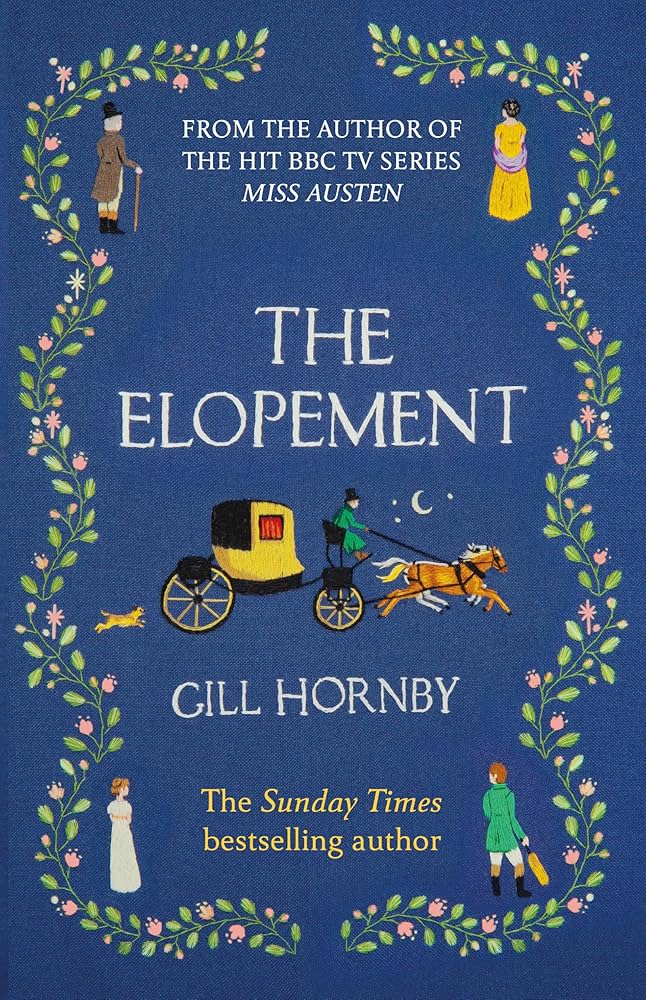
She first authored two sharply humorous narratives about modern England before immersing herself in the Regency period. “I was ready for the world to tire of me and the Austens,” she jokes. However, her career took off, and she is poised to release The Elopement, her third novel in the Austen series, following Miss Austen (2020) and Godmersham Park (2022). She has also been named honorary president of the Jane Austen Society during the year marking the 250th anniversary of Austen’s birth, allowing her to delve deep into the realm of bonnets and carriages, imposing aunts, and sycophantic clergymen. Additionally, she is fortunate to have her series adapted for the screen.
Hornby’s Austen novels are notable for their humor, bittersweet family tales, and meticulous research. They center on Cassandra, Jane’s beloved elder sister (portrayed by Keeley Hawes in the upcoming series), who famously destroyed thousands of Jane’s letters, leading many historians and admirers to misrepresent her legacy. After extensive research in the Austen archives, Hornby developed a “fangirl crush on Cassandra.” She posits that by “sanitizing” Jane’s reputation, Cassandra allowed her sister to remain straightforwardly adored—saving her from becoming a subject for cancellation. The destruction of those letters was a clever and kind act of “legacy management.”
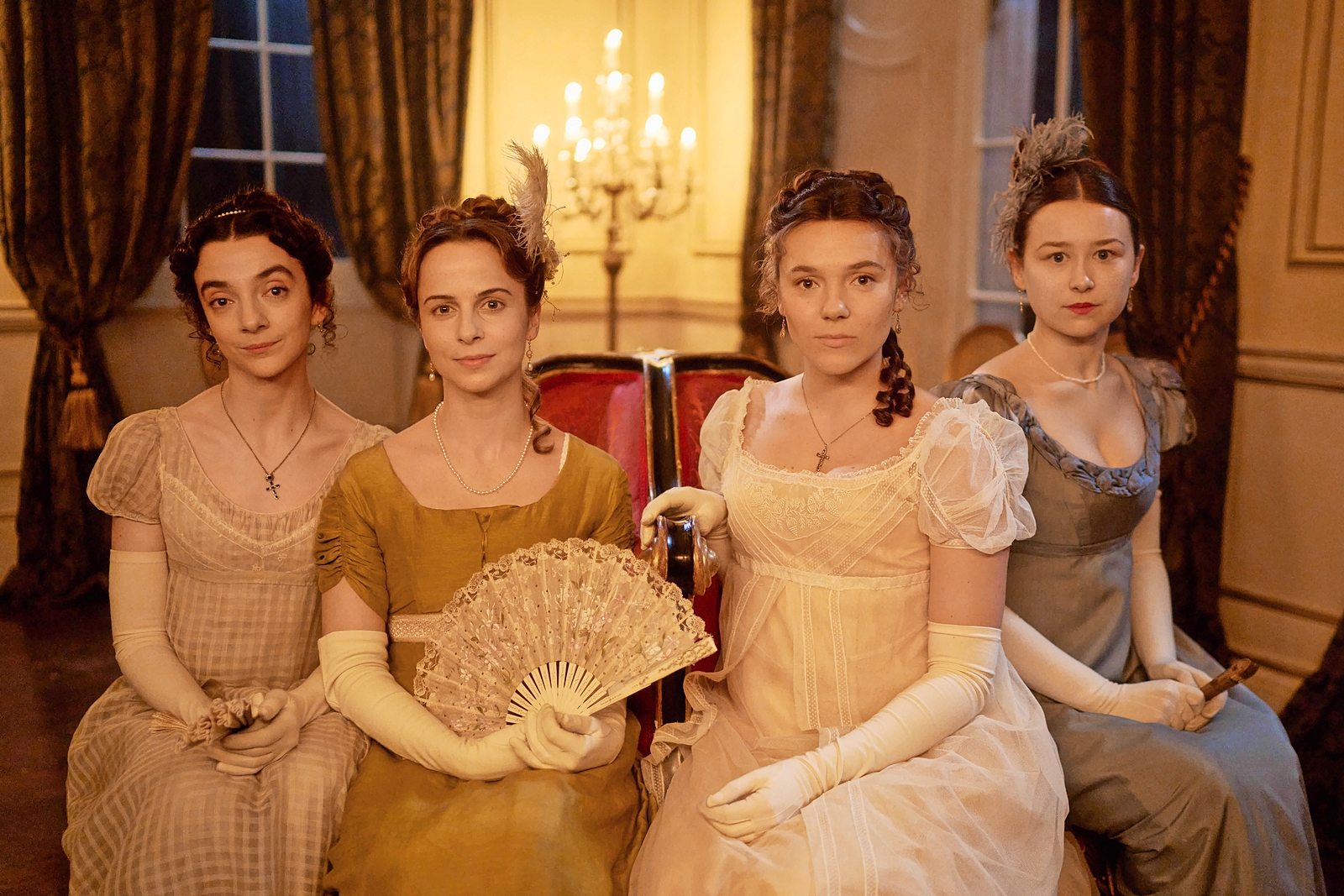
“In all the memoirs I sifted through, mostly penned by their nephews and nieces, Cassandra received such awful treatment, and that irked me,” Hornby comments. “Jane smartly died at 41, avoiding becoming an encumbering old woman. ‘All the joy fled the cottage when Jane was gone,’ they would lament. Yet when I read Jane’s letters—filled with adoration for Cassandra—it illuminates how fame affects family dynamics. The famed person becomes the focus, while it’s a complex ecosystem.”
In Hornby’s ecosystem, the prominent figures have been the men in her life—her husband, Robert Harris, and her brother, Nick Hornby, both successful authors. Upon reaching their picturesque vicarage around lunchtime, Harris—sporting lively pink socks and Noël Coward-esque slippers—is busy hosting with a bottle of champagne in one hand and an iPad in the other. Amidst the cardinals converging in Rome, he juggles the roles of genial host and media expert on the papacy, filling up my glass while engaging with the global media’s hunger for commentary on the papal proceedings. Between iPad interviews, he manages a few sips of champagne and a quick nap in the sun.
Meanwhile, Hornby, dressed stylishly in denim, is preparing a mushroom risotto. She smokes while he indulges his drink. “If I have one, will you write that I chain-smoked through our chat?” she quips, pulling out a tin of cigarillos. This dynamic duo exemplifies how to transform history into engaging fiction. They elevate the craft of novel-writing to a glamorous art form. Who wouldn’t dream of having adjoining studies overlooking a pristine lawn rolling down to the Kennet and Avon canal?
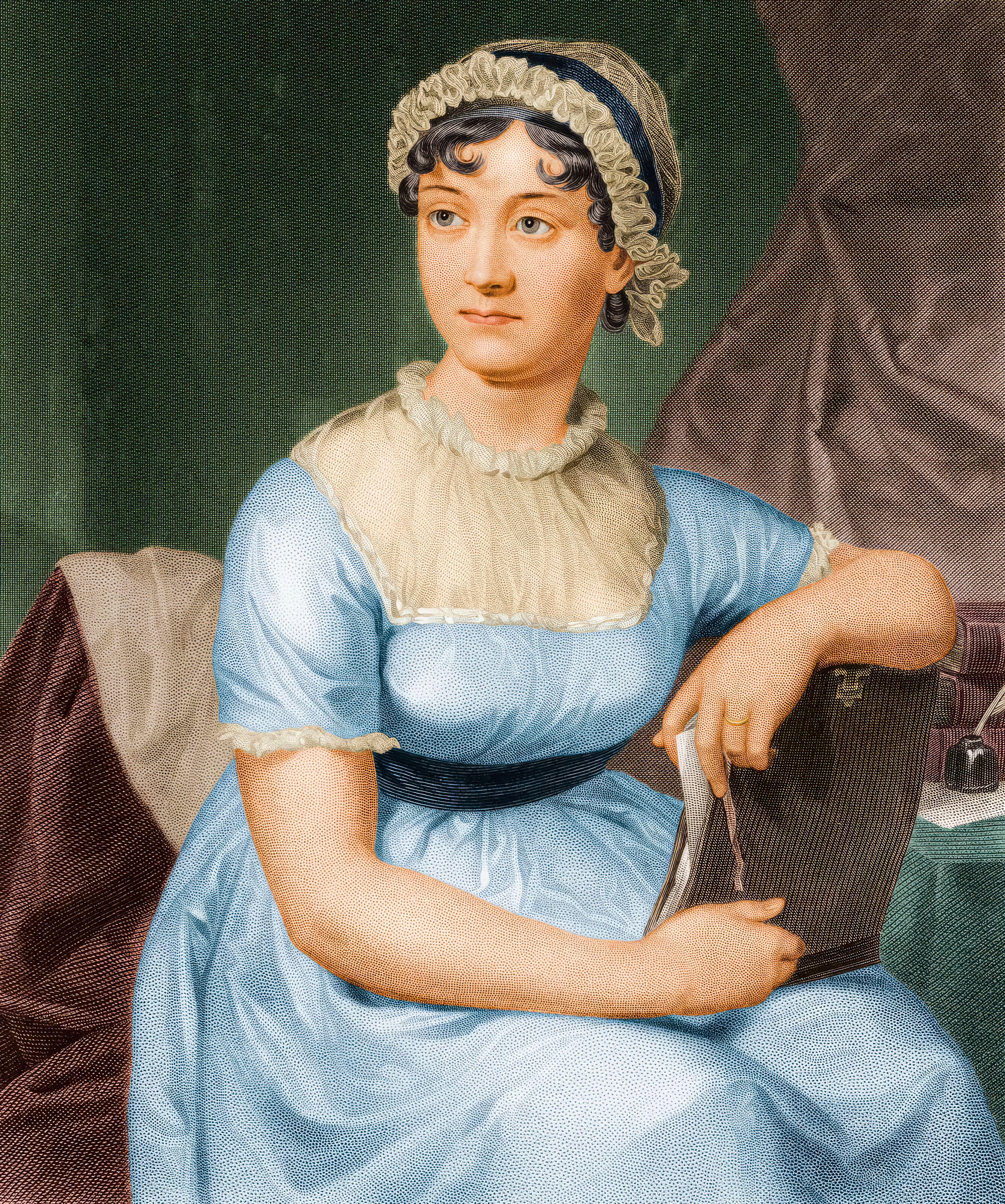
Harris jokes that their house in Berkshire is “the residence that Hitler built,” as they acquired it with the profits from his successful alternative history novel, Fatherland (1992), in which Nazi Germany emerges victorious in World War II. Yet Kintbury also holds connections to Austen; Cassandra was once engaged to the vicar’s second son, who resided on that very land. In Miss Austen, Kintbury serves as the place where Cassandra seeks Jane’s letters and becomes the backdrop for a longstanding literary mystery.
While Miss Austen delved into Cassandra’s reasons for destroying her letters, Godmersham Park portrayed the lives of other single women through the narrative of Anne Sharp, the governess and friend to Jane, who tutored her niece Fanny Knight. Fanny is the central character in The Elopement, exploring her tumultuous marriage to the self-righteous widower Sir Edward Knatchbull and her reluctant transition into stepmotherhood for his five children.
Hornby possesses a keen awareness of the failings of individuals while also capturing Austen’s trademark irony. Take her humorous reflection on cricket: “There seemed to be an unexpected focus on refreshments for something she envisioned as a sport.” Additionally, she astutely portrays the self-deceptions of stepmothers. Fanny perceives no redeeming qualities in her stepdaughter Mary, yet insists she always has her best interests at heart. At one point, she even arranges for Mary’s hair to be shaved off, believing it will grow in thicker, a well-meaning act of “sheer brutality.” Her writing resonates with deep empathy, touching on “the tyranny of parents over children” and their negligence, hinting at personal experiences.
Her father, Derek Hornby, the former chairman of London and Continental Railways, was frequently absent due to work commitments, ultimately leaving her mother for another family when Gill was eight years old. When asked if she had a negative experience with a stepmother, Hornby responds, “Aren’t all stepmothers bad?” She muses on the prevalent self-deception that accompanies step-parenting. “You must see through the children’s perspective. Just because you’re offering them ice cream and not plotting their demise, it doesn’t mean you’re not perceived as the enemy.”
Not only has Hornby created a large family of her own—her four children engage in remarkable careers, from authoring books to contributing to the BBC series The Traitors—but she also chooses to depict large and loving families in her works. “Because my family was a peculiar little triangle, I found a fascination in the interaction between two parents. It seemed so exotic: a dad returning home from work, and a mother in an apron… so romantic.” She admires the Austens for their lively intellect, recounting how they “held theatrical performances in the barn and rearranged chairs to dance.”
Throughout Hornby’s Austen-inspired novels, women are depicted striving for financial independence, a reflection of her own life experiences. “When money disappeared, we had to adjust to living in a smaller house, quite different from my father’s grand dream home.” Her mother was compelled to find work, leading Hornby, starting at age eight, to navigate home from school to a “very cold, empty house… Childcare didn’t exist back then.”
These experiences shaped her decision to step away from her career while raising her children. “Reflecting on my thirties and forties, all I recall is peeling potatoes and driving people around. I’m reluctant to admit I was never bored. I found motherhood inherently creative.”
One of the most enjoyable aspects of Hornby is how her polished demeanor—evident in her crisp vowel sounds and elegantly styled hair—contrasts with her candid expressions, such as “f***-off job.” Each impression of her seems to counteract the last; one moment she may be raving about her two-year-old grandson, then quickly delving into a hilariously sharp critique of a mutual acquaintance. She embodies both a romantic spirit and a disdain for foolishness, a characteristic that aligns her with Austen’s legacy. It’s her sharp wit—rather than any idealized notion of the Regency period—that solidifies her role as a fitting steward of Austen’s essence.
Hornby emphasizes the importance of having received commendations from Austen’s biographers, Deirdre Le Faye and Claire Tomalin, along with her 94-year-old former English teacher, who reviews her manuscripts and provides feedback. Being asked to be the president of the Jane Austen Society left her feeling “stunned” and delighted, particularly to have the endorsement of the community of Austen enthusiasts.
She feels fortunate to leverage the Austen legacy to pen the family sagas that have always intrigued her. Generally, she observes, the publishing landscape tends to overlook humorous social novels concerning families. These days, world-building literature gravitates towards dragons and fairies.
“There are two things I find peculiar in modern novels,” she notes. “Firstly, it’s odd to read a highly praised book that includes no humor. Life inherently contains comedy. Laughter is what distinguishes us from animals. Secondly, it’s strange when entire novels exist without any mention of family. I’ve yet to meet anyone who doesn’t reference their parents or siblings, because whether estranged or close, they profoundly shape our identities.” Taking a puff from a cigarillo, she poses the question, “If books aren’t about social connections, what are they truly about?”
The Elopement by Gill Hornby (Century £18.99 pp480) is set for publication on May 22.
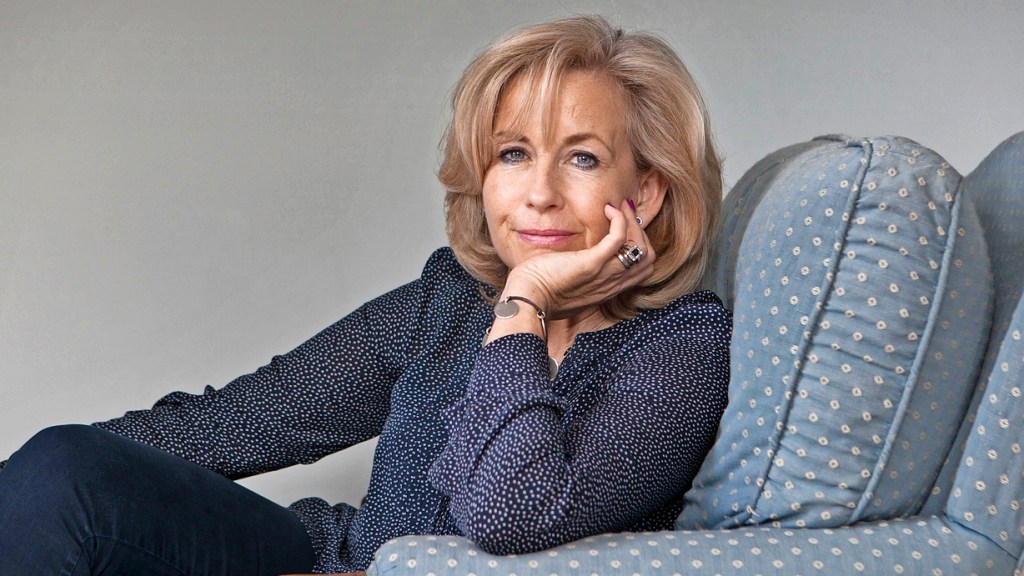
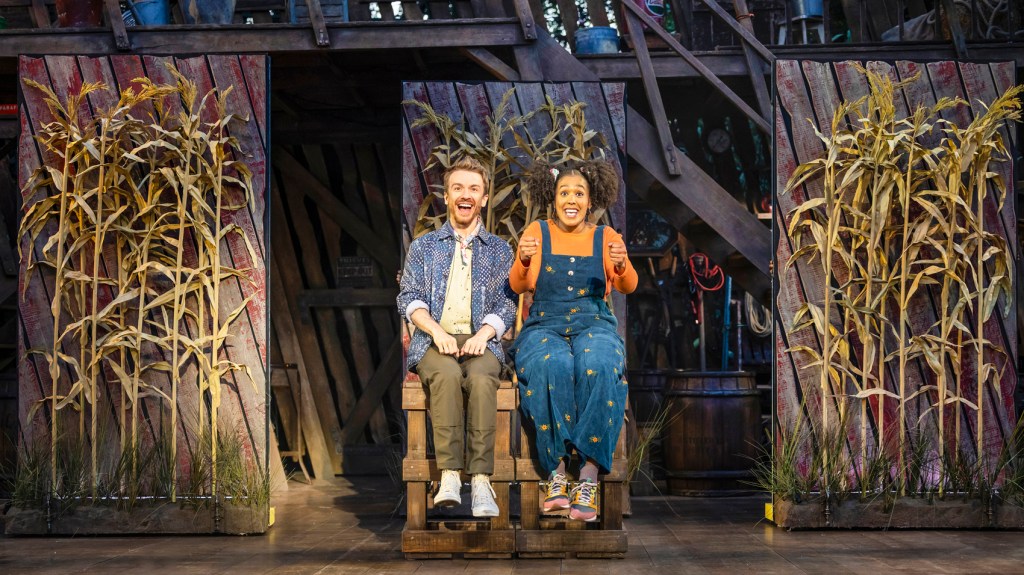

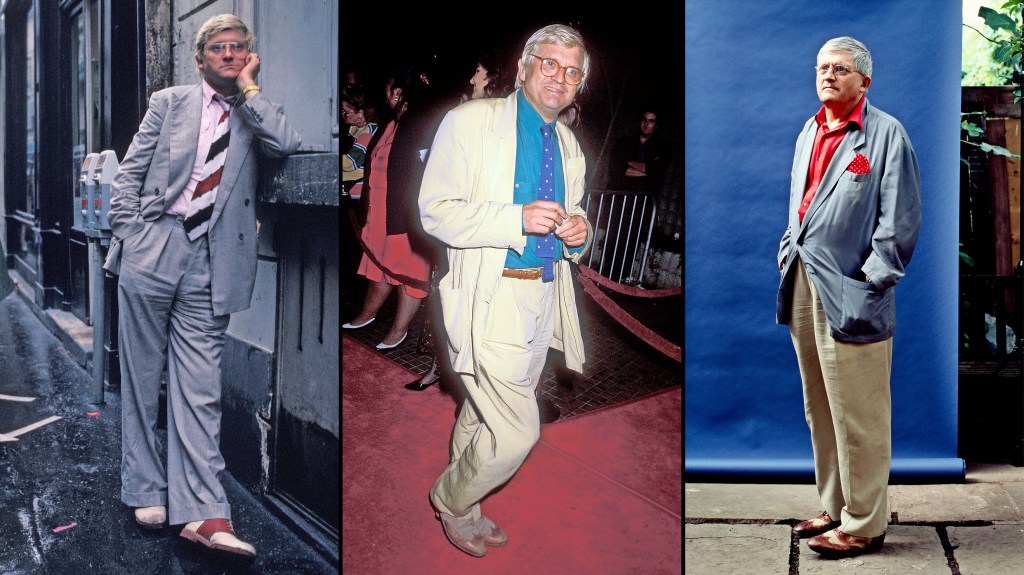
Post Comment